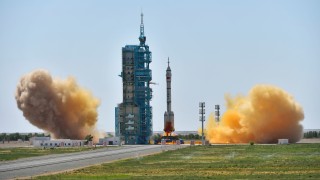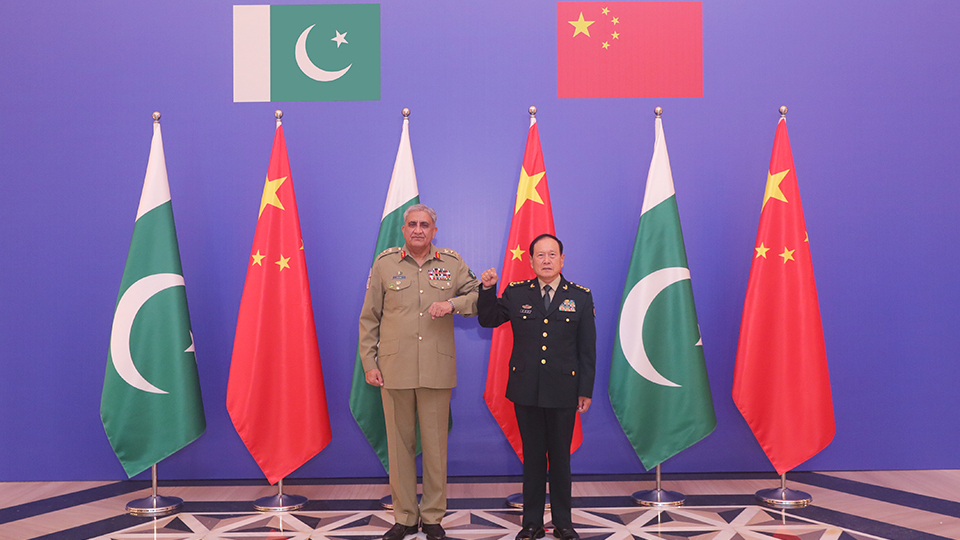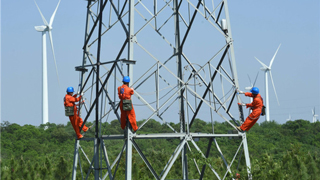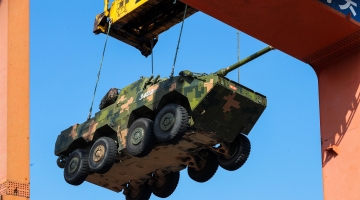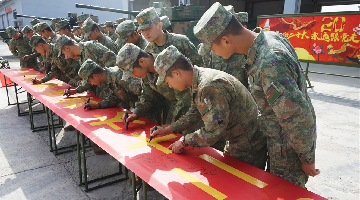China's strategic partnership with Serbia is soaring to new heights with recent news that the central Balkan country signed a deal to purchase nine Wing Loong drones, officially known as the Chengdu Pterodactyl-1. Serbian Defense Minister Aleksander Vulinsaid this "will greatly strengthen the Serbian military, which will gain capabilities it has not had in the past."
Western mainstream media is already fearmongering this development, warning that it might encourage Serbia to start a regional war.
These concerns are misguided because Serbia is militarily non-aligned, entirely surrounded by NATO members, and aspires to be part of the bloc (the country is now internationally recognized by its new name: North Macedonia.)

In the unrealistic scenario that Serbia were to go on the offensive against a NATO member, nine drones are not going to make a difference against the world's largest military bloc. But the drones would make regional countries think twice about attacking it.
Even so, it's extremely unlikely that anything of the sort will happen since Serbia shares the region's vision of one day joining the EU. It is more likely that the drones will be used in response to unconventional non-state threats instead of deterring conventional state-driven ones.
Serbia's geography makes it extremely vulnerable to being exploited as a transit country for drug and human smugglers, as was seen during the 2015 migrant crisis. Thus, it has an interest in using drones to monitor their activities.
In fact, although the Wing Loong drones can be equipped with air-to-surface missiles, their intended purpose is for surveillance and reconnaissance. This is something that's mostly been left out of the western mainstream media's fearmongering narrative.
All Balkan countries have a stake in curtailing the drug and human smuggling trades that affect them, so Serbia's purchase of these drones for security purposes should be celebrated and not viewed suspiciously.
Nevertheless, it seems that the furor over this sale is not so much about the drones, but that they represent the first such Chinese sale to a European country. It's something that has been highlighted in most western reporting.
Some countries feel uncomfortable with the strengthening of Chinese-Serbian relations because they're worried that their own regional influence will decrease. But that is the wrong way to react to China's growing role in the Balkans.
China has made enormous strides in helping Serbia and the region as a whole in recent years. For example, China purchased a struggling steel factory in Smederevo in 2016, and has plans to construct a high-speed railway from the Hungarian capital of Budapest to the Greek port of Piraeus.

Since then, the Smederevo factory has turned a profit, saving many jobs. And a new sinter plant will be built nearby. As for what some call the "Balkan Silk Road," it has tremendous potential to further integrate the region and create more jobs.
These outcomes are aligned with what the EU wants in the Balkans, proving that China is not a competitor to western influence but a complementary partner that provides its regional counterparts with another option for reaching the same goals.
Per the long-standing stance of China, Beijing does not interfere in the domestic affairs of its partners and has absolutely no interest in pressuring them to curtail their relations with others.
China's partners, such as Serbia, engage its military, economic, and other services because of pragmatic reasons and not to send any sort of political signal.
Analyzing Chinese-Serbian relations or China's ties with any other country for that matter through the prism of zero-sum outcomes is inaccurate and will only lead to problems. The correct way of interpreting them is through a win-win perspective that guides all of Beijing's international outreach.
Editor's note: Andrew Korybko is a Moscow-based American political analyst. The article reflects the author's opinions, and not necessarily the views of China Military Online.

